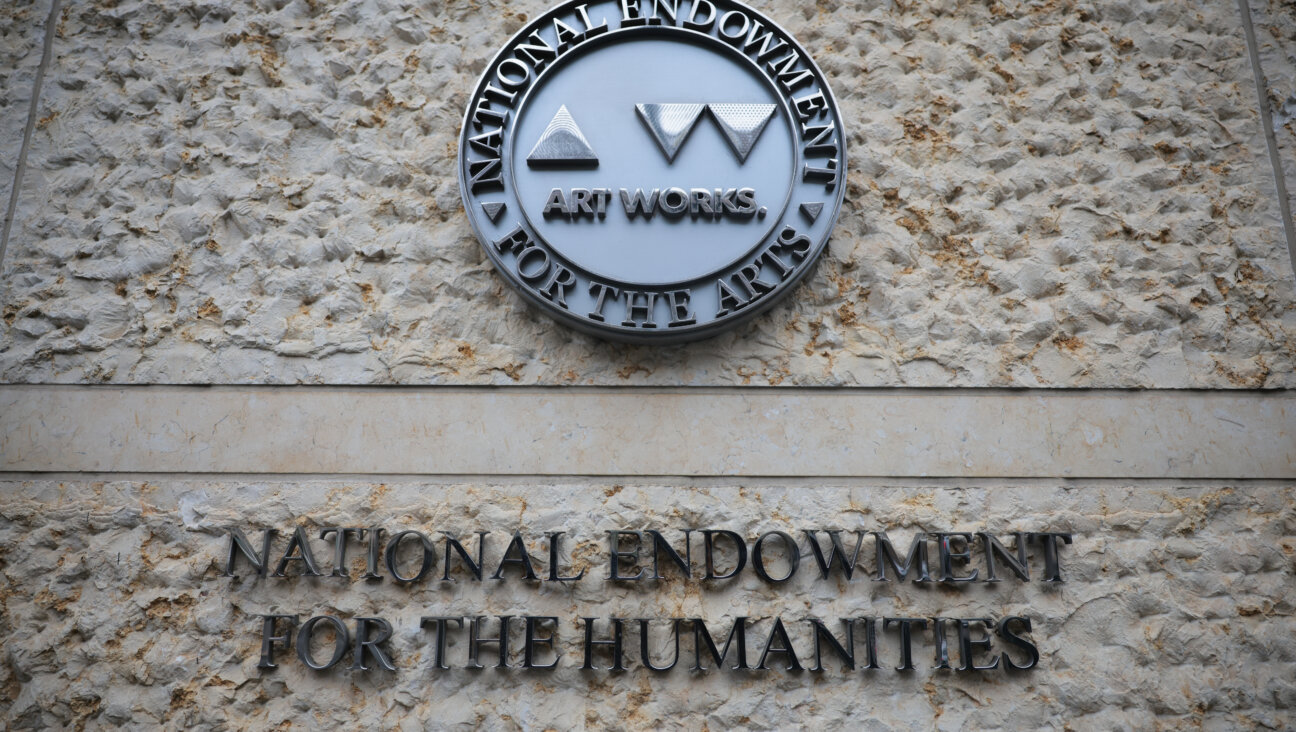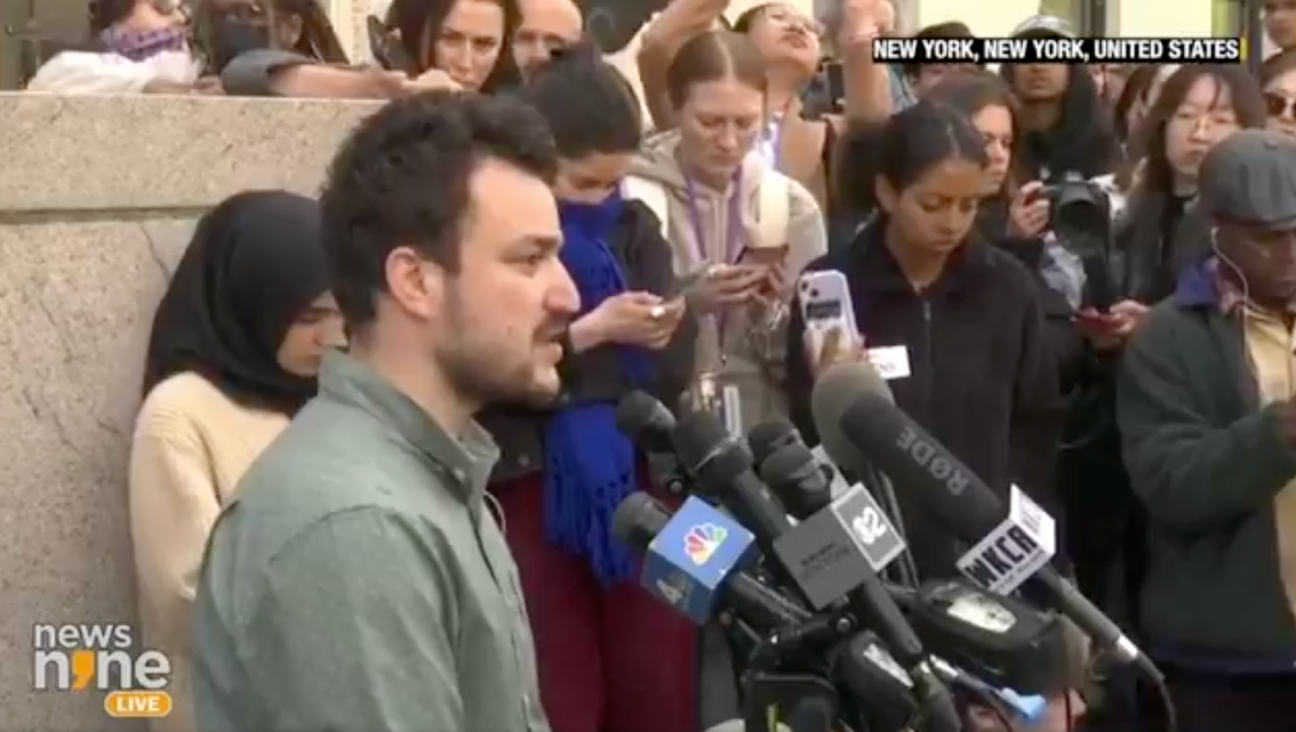As New Year Dawns, Jewish Women Mark Milestones

Jen Taylor Friedman is the first woman to scribe a Torah. It was unveiled September 9 in Manhattan
Just in time for the new year, several notable firsts have taken place in the world of Jewish women.

Jen Taylor Friedman is the first woman to scribe a Torah. It was unveiled September 9 in Manhattan
On Sunday, September 9, the first Torah to have been scribed by a woman was unveiled at Drisha Institute for Jewish Education, located in midtown Manhattan, before being transported to its home at the United Hebrew Congregation, a Reform synagogue in St. Louis. The milestone followed on the heels of two others: The publication of “Shaarei Simcha” (“Gates of Joy”), touted as the first modern liturgical work written and edited by women for use in the Orthodox community, and of Dinah Berland’s “Hours of Devotion: Fanny Neuda’s Book of Prayers for Jewish Women,” a reissue of a rare 1855 book of techinot, or supplications — the first ever written by a woman for other women. (For a full story on Berland’s book, please see page B9.)
“Just as we have male and female rabbis, our congregants have seen that yet another role that was and still mostly is traditionally open to men is now being opened slowly to women,” Brigitte Rosenberg said. Rosenberg is the associate rabbi of United Hebrew Congregation, where 27-year-old calligrapher Jen Taylor Friedman’s Torah is headed. Taylor Friedman is one of only a handful of known female Torah scribes in the world. “Our congregants, especially our children, had the opportunity to meet with a woman who is a trailblazer,” Rosenberg added.
But Taylor Friedman herself was quick to point out that her drive to write a Torah wasn’t motivated by a desire to advance the plight of Jewish women. “I wrote the Torah because I wanted to write a Torah, not because I wanted to make a big feminist statement,” she said. “The first-woman aspect is an enjoyable component instead of the central achievement.”
“Shaarei Simcha,” which is being described as a “cutting-edge prayer book” by its publisher, Ktav Publishing House, was written and edited by Adena K. Berkowitz and Rivka Haut. The book adheres to Orthodox Jewish law, yet provides gender-neutral translations of prayers. But what may set this book further apart from similar works is its inclusion of — and support for — the roles women can play in a number of religious rituals, including the blessings recited before drinking wine (Kiddush), during Grace After Meals, and at bar/bat mitzvahs and wedding celebrations.
To be sure, this week also saw renewed tension between activists and the established Jewish community. United Jewish Communities, a humanitarian and philanthropic organization that represents and serves 155 Jewish federations and 400 independent Jewish communities across North America, was excoriated for failing to include any female rabbis in its High Holiday Divrei Torah streaming video Web program.
In a letter to UJC representatives — including Howard Rieger, president and CEO, and others, such as Rabbi Gerald I. Weider, senior consultant to UJC’s Rabbinic Cabinet — Shifra Bronznick, founding president of Advancing Women Professionals and the Jewish Community, a national not-for-profit that aims to advance women into leadership positions in Jewish life, wrote that UJC’s decision to leave female scholars out of its streaming program “demonstrated a lack of accountability for the commitments it made to close the gender gap in the federation system.”
She continued, “It must be that the bias in the federation system is so pervasive that it obscures from you and your staff the continued absence of women in critical leadership roles.”
Despite this controversy, the recent advancements made by females have many in the Jewish world hopeful that more progress will be made in the new year. “We are proud that Jen is the first female scribe to have completed an entire Torah,” said Ron Gieseke, United Hebrew Congregation’s president. “United Hebrew has been blessed by Jen and our new Torah.”
The Forward is free to read, but it isn’t free to produce

I hope you appreciated this article. Before you go, I’d like to ask you to please support the Forward.
Now more than ever, American Jews need independent news they can trust, with reporting driven by truth, not ideology. We serve you, not any ideological agenda.
At a time when other newsrooms are closing or cutting back, the Forward has removed its paywall and invested additional resources to report on the ground from Israel and around the U.S. on the impact of the war, rising antisemitism and polarized discourse.
This is a great time to support independent Jewish journalism you rely on. Make a Passover gift today!
— Rachel Fishman Feddersen, Publisher and CEO
Most Popular
- 1

Opinion My Jewish moms group ousted me because I work for J Street. Is this what communal life has come to?
- 2

Opinion Stephen Miller’s cavalier cruelty misses the whole point of Passover
- 3

Opinion I co-wrote Biden’s antisemitism strategy. Trump is making the threat worse
- 4

Opinion Passover teaches us why Jews should stand with Mahmoud Khalil
In Case You Missed It
-

Culture Jews thought Trump wanted to fight antisemitism. Why did he cut all of their grants?
-

Opinion Trump’s followers see a savior, but Jewish historians know a false messiah when they see one
-

Fast Forward Trump administration can deport Mahmoud Khalil for undermining U.S. foreign policy on antisemitism, judge rules
-

Opinion This Passover, let’s retire the word ‘Zionist’ once and for all
-
Shop the Forward Store
100% of profits support our journalism
Republish This Story
Please read before republishing
We’re happy to make this story available to republish for free, unless it originated with JTA, Haaretz or another publication (as indicated on the article) and as long as you follow our guidelines.
You must comply with the following:
- Credit the Forward
- Retain our pixel
- Preserve our canonical link in Google search
- Add a noindex tag in Google search
See our full guidelines for more information, and this guide for detail about canonical URLs.
To republish, copy the HTML by clicking on the yellow button to the right; it includes our tracking pixel, all paragraph styles and hyperlinks, the author byline and credit to the Forward. It does not include images; to avoid copyright violations, you must add them manually, following our guidelines. Please email us at [email protected], subject line “republish,” with any questions or to let us know what stories you’re picking up.
















